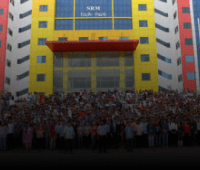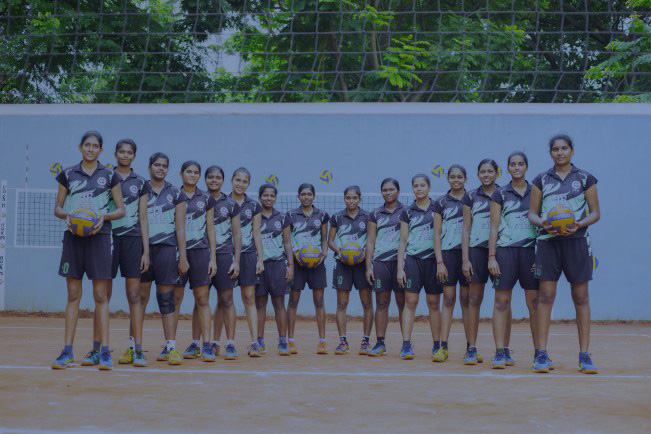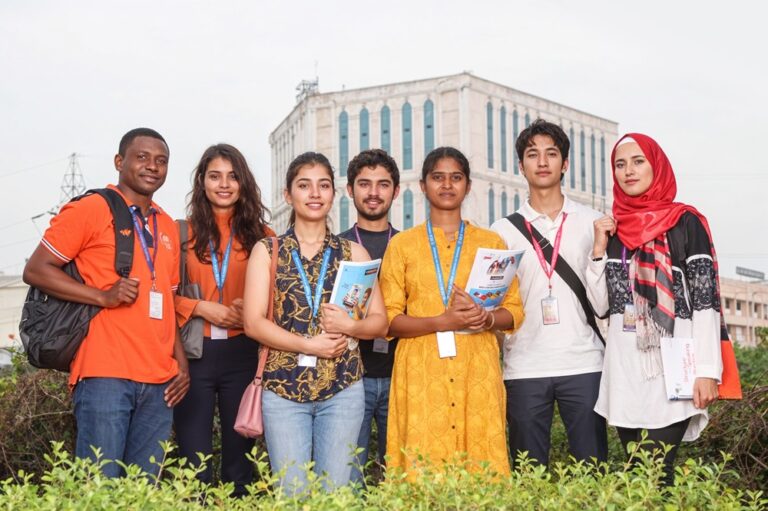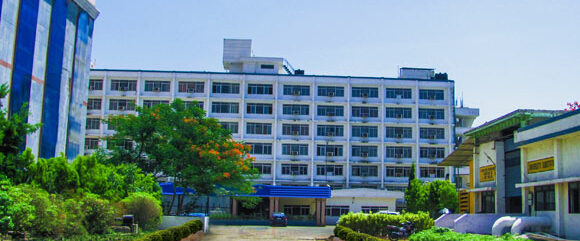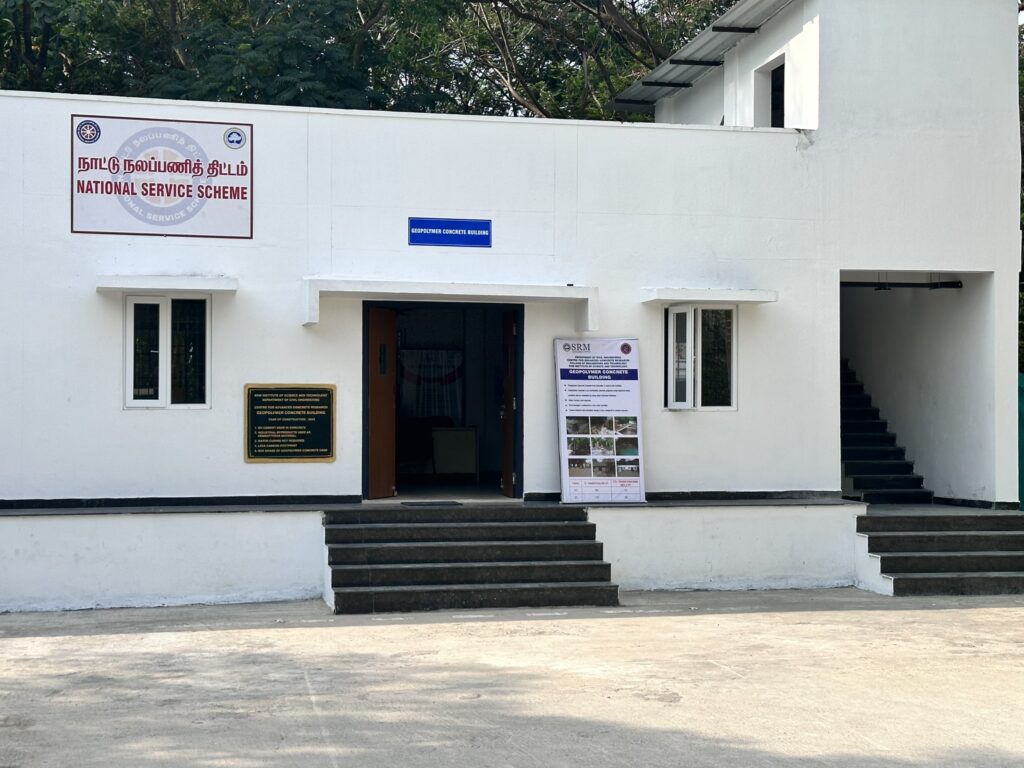Centre for Advanced Concrete Research (CACR)
Overview
Centre for Advanced Concrete Research (CACR) at SRM Institute of Science and Technology, Kattankulathur was started in the year 2010, to carry out interdisciplinary research in the field of concrete, a most common material of construction in any built environment and a basic necessity for accelerated economic development. At present, Portland cement is very widely used as binder in concretes. But, the high content of ‘Embodied Carbon Dioxide’ (ECO2) and ‘Embodied Energy’ in the cement are the major reasons for recent laboratory studies all over the world to find alternate binders, as there is an urgent need for making the constructions more eco-friendly and sustainable.
The Research and Development activities in this area are therefore taken as main focus of the newly formed Centre. Towards this, use of industrial wastes (such as slags, fly ash, etc.,) along with modern materials (such as nano-silica, nano-cellulose fibres, nano-alumina, etc.,) would be explored using recent developments occurring in the fields of science and technology such as nano-technology, bio-technology, chemical engineering, including usage of modern analytical instruments such as XRD, various spectroscopes, DTA/TGA, etc.,
Objectives
- To identify the improvements/modifications desired in the existing conventional concrete construction practices.
- To develop new materials of construction with lower 'carbon foot prints' and reduced 'embodied energy contents'
- To formulate guidelines for ecofriendly constructions.
- To undertake sponsored investigation studies to find solutions for specific field problems in construction industry from considerations of selection of appropriate materials and disposals of waste/by-products from industry.
- To perform all type of consultancy works on concrete especially mechanical studies, durability studies, non-destructive testing studies etc.,
- To conduct seminars/workshops/advanced courses to disseminate the latest knowledge in the field of concrete composites.
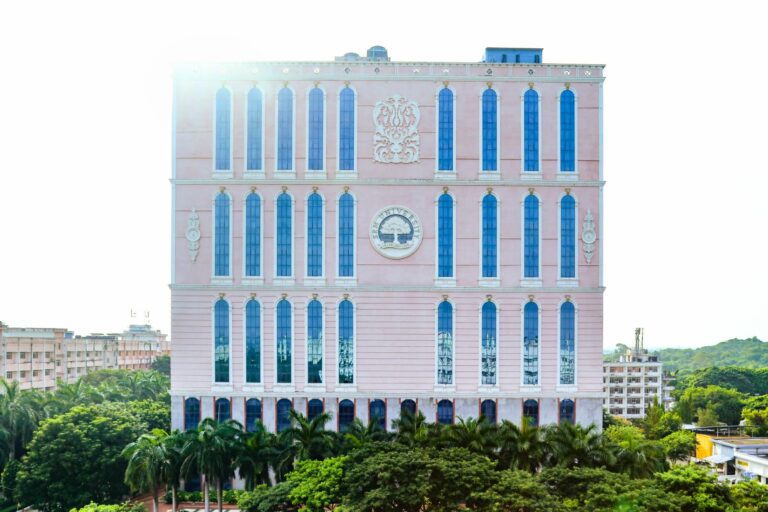
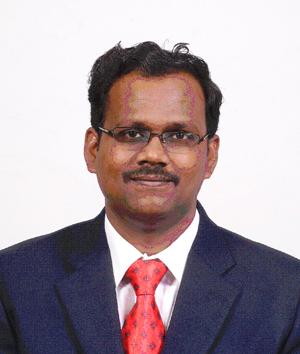
Dr. P.R. Kannan Rajkumar
Co-Ordinator
Phone/Extn: 1478
Email: kannanrp@srmist.edu.in
Welcome to CACR
In over 12 years since the inception of the Center for Advanced Concrete Research (CACR) at SRMIST, there have been breakthrough research conducted by many scholars and students. CACR is amongst most advanced lab facilities in the campus. With such rapid shift occuring in the industry today, it is imperative for CACR to stay ahead. With the support of the Leadership team at SRMIST, we at CACR have been able to take up research areas and themes that are cutting edge and futuristic.
We welcome you all to our center and we look forward to exploring how we can work tigether.
Research Areas
- Concrete technology, high performance concretes (HPCs), mix design methodologies
- Repair techniques/materials for resisting corrosion of embedded steel and for enhanced durability of concrete
- Use of wastes such as fly ash, silica fume, blast furnace slag, rice husk, etc
- Concrete technology, high performance concretes (HPCs), mix design methodologies
- Repair techniques/materials for resisting corrosion of embedded steel and for enhanced durability of concrete
- Use of wastes such as fly ash, silica fume, blast furnace slag, rice husk, etc
- Fly ash aggregates (replacements for crushed stone aggregate concretes)
- Low energy intensive geopolymeric cement concretes
- Ultra high performance concretes (reaction powder concretes)
- Paver/building blocks with special properties such abrasion resistance (for industrial floorings and container handling areas of harbours/ports)
- Nanotechnology in constructions (nanosilica, nanocellulose fibres, nanocarbon fibres, etc for enhanced structural and durability of concretes)
- Ferrocement elements with conventional resistant geopolymer concrete
- High temperature resistant geopolymer and Portland cement concretes
- Zero-Portland cement constructions using inorganic alumino silicate binders
- Natural fibre reinforced concretes (bamboo, coconut fibres, etc)
- Bacterial concretes or bio-concretes (for improving durability of existing and new concrete constructions, repair/strengthening of deteriorated/damaged monuments
- Special concretes for nuclear waste disposal systems
- Use of special industrial wastes such as copper slag in nuclear concretes
- Self curing concretes for constructions
- Carbonation studies on cement concrete and geopolymer concrete
- Electrical characterizations in geopolymer and Portland cement composites
- Corrosion residence special cement containing specially identified chemical admixture
- Early traffic worthy concretes for fast construction and repair of roads
- Self curing and acid resistant new concretes for floorings/linings/tiles etc
- Self curing ecofriendly concretes for quick repair/strengthening
- Shock/blast/vibration resistant structural components
- Development of Electrical equipment for characterisation/evaluation of concrete microstructure
- Ferrocement technology with new reinforcements and binder systems
- Carbon/glass fibre reinforced plastic rods for aggressive environments
- Aerated/foamed lightweight concretes with new binder systems
- Quick mould release concretes for precast components
- Prestressed concrete sleepers for railways with new binders
Funded Projects
There are various ongoing and past collaborations with the higher education and allied research segment. Especially for the funded projects, SRMIST has proven to be a committed and reliable partner given the high degree of academic excellence and research vigour of our faculty and scholars.
Infrastructure & Facilities
Most of the topics of research under CACR would require interdisciplinary network of science and engineering including employment of a wide range of equipments. With the excellent facilities available in various laboratories of SRM Instittute of Science and Technology, studies will be taken up with active participation by the competent and recognised experts of different faculty members of various departments across the campus. However, specific research and development facilities as required would be set up as required in phased manner.
Publications
Uniquely large space for learning, collaboration, exchange. We strive to make our library premises a favorite locations in the campus. We see ourselves as enabers to help our users advance in their learning and knowledge aspirations.
Our Geopolymer Achievements
-
Zero Cement Concrete Building
-
Flyash & GGBS
-
Precast Toilet
-
Pavement
-
Paver Block
-
Road
-
Road (Internal)
Geopolymer Concrete is a zero cement concrete which replaces cement by industrial byproducts such as flyash, GGBS along with Sodium Hydroxide and Sodium Silicate as alkali precursors and other constituent materials such as M Sand and Coarse Aggregate. Geopolymer Concrete helps in reducing global warming and CO2 emissions which are produced during cement production process. The Targeted Compressive Strength of 30 MPa has been achieved in 14 days with only ambient air curing (no water curing) in this construction. The cost of geopolymer concrete is almost similar to conventional cement concrete. Following Three Sustainable Goals has been achieved while constructing this building,
- Goal 9 – Build resilient infrastructure, promote inclusive and sustainable industrialization and foster innovation.
- Goal 11 – Make cities and human settlements inclusive, safe, resilient and sustainable.
- Goal 12 – Ensure sustainable consumption and production patterns.
Advantages of Geopolymer Concrete is that there is no need of water curing, no cement used, strength can be achieved in shorter period of time.
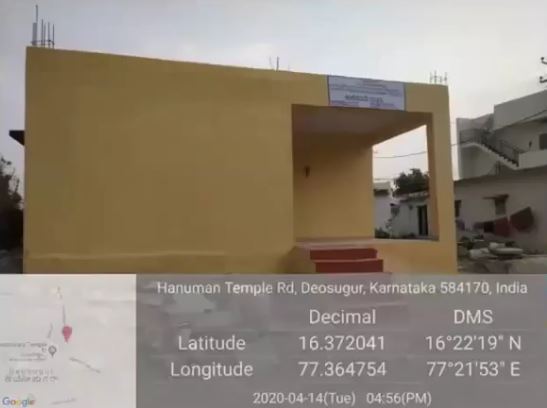
Geopolymer Demo Building at Raichur, Karnataka
Project Name: ‘Field Demonstration of Geopolymerisation of Flyash and GGBS in the manufacturing of process of precise building projects for construction of utility buildings’ – DST No DST/TDT/WMT/2017/101
Dimension of Building: 8mx8m
Columns and Beams: 9 Columns and 7 Beams
Type of Concrete: Geopolymer Concrete
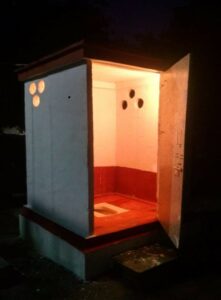
Precast Geopolymer Toilet Block at SRM IST, Kattankulathur
Project Name: ‘Field Demonstration of Geopolymerisation of Flyash and GGBS in the manufacturing of process of precise building projects for construction of utility buildings’ – DST No DST/TDT/WMT/2017/101
Date of Casting: 23/10/2019
Date of Erection: 20/11/2019
Time for Erection: 30 Minutes
Type of construction: Precast Construction
Type of Concrete: Geopolymer concrete
Demo Geopolymer Pavement for ACCE Program at Pandian Hotel, Madurai
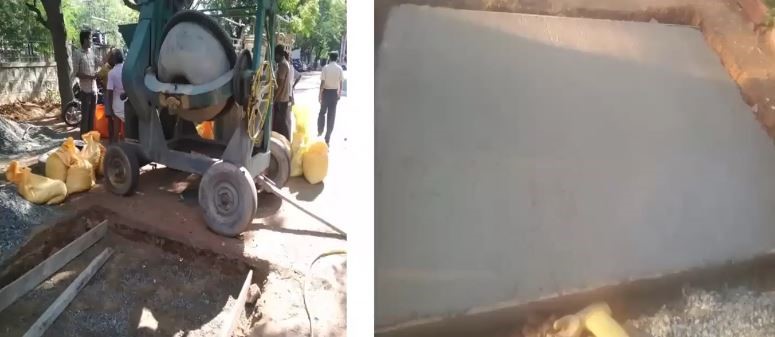
Geopolymer Paver Block Production at ASR Bricks, Coimbatore
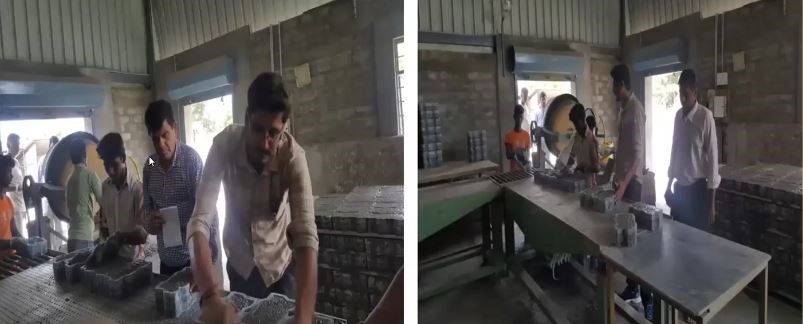
Geopolymer Road constructed in RKM Powergen Limited, Chhattisgarh
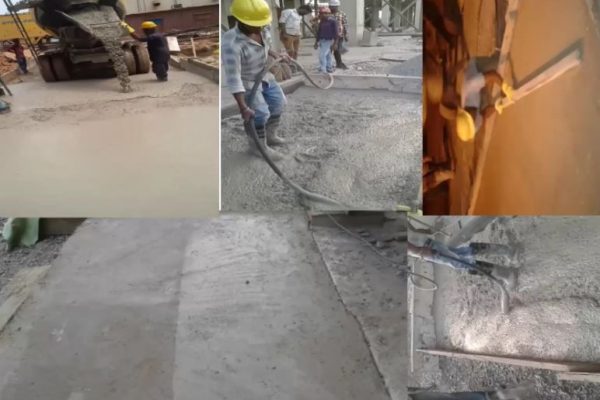
Geopolymer Road constructed in SRM Medical College and Hospital, Kattankulathur
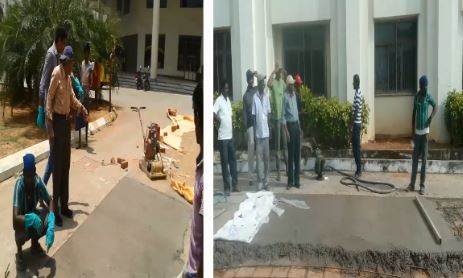
Reach US

Dr. P. R. Kannan Rajkumar
Coordinator,
Centre for Advanced Concrete Research (CACR)
3rd Floor, Old Administrative Building, Main Campus,
SRM Institute of Science and Technology,
Kattankulathur – 603203.
- kannanrp@srmist.edu.in


